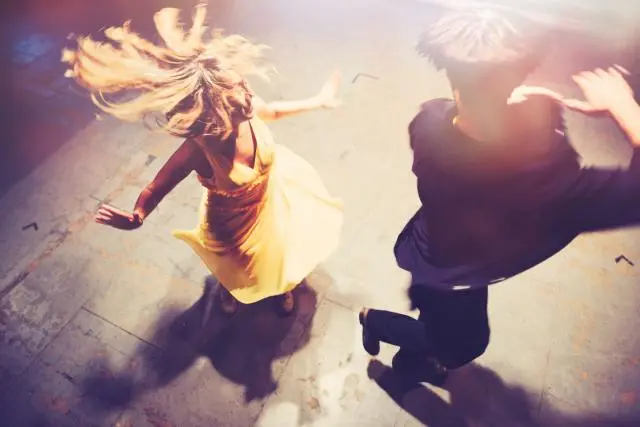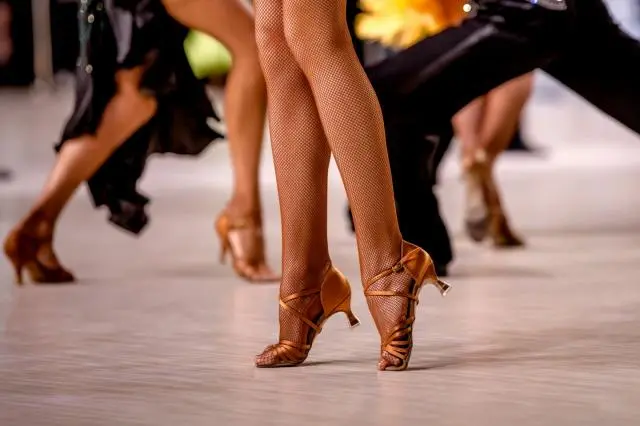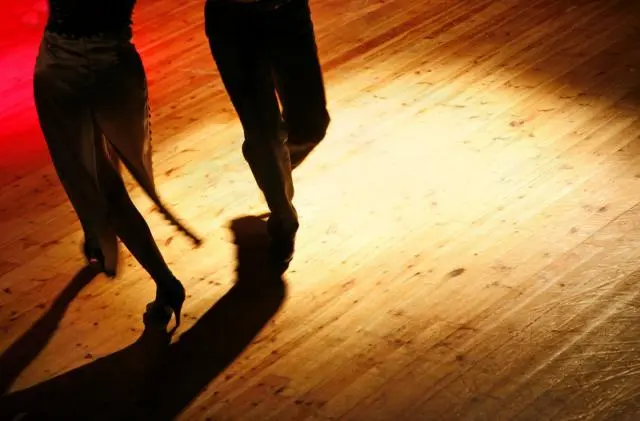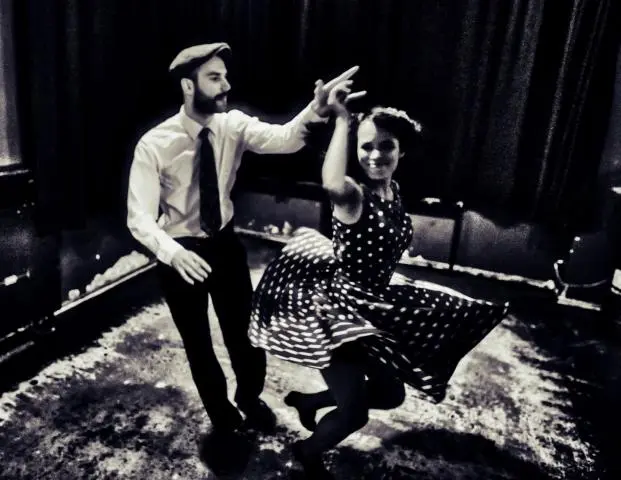Boogie Woogie in America
More than rock'n'roll
Boogie Woogie: An exciting story
Boogie-Woogie was originally invented in the USA in the 1920s. It is one of the swing dances and is based on the popular Lindy Hop. The American people developed the different swing dances It continued as part of dance events and tournaments over the years and individual dance styles emerged from it as well as boogie-woogie. Thanks to the great popularity of the dances, more and more figures and... Twists invented. During World War II, the dance was brought to Europe by American soldiers. In contrast one of the young people who were immediately enthusiastic about the interesting and unusual dance style he was socially rejected. The dance was too offensive and morally unacceptable. Dance schools refused to teach themselves the dance and so it was only danced secretly in the back rooms. In the 1950s the dance schools could no longer escape the popularity of American dance. The Schools made small changes to the dance and the characters considered salacious and taught him after all. However, boogie-woogie is not exclusively limited to the music genre of the same name danced: Rock, blues and swing are also ideal. Through the music of Elvis in the 1950s and In the 1960s, young people once again showed their protest against the strict and narrow-minded upbringing Company. The boogie-woogie supported them. Over time, boogie-woogie has become one popular tournament dance developed.
The differences to rock'n'roll
The rock 'n' roll dance is based on boogie-woogie. However, he is characterized by numerous acrobatic figures supplemented and changed accordingly. The rock'n'roll dance is based on a practiced and beforehand agreed choreography while boogie-woogie is danced more freely. That's what rock'n'roll is like Dance very suitable for tournaments. Boogie-Woogie is also danced in discos and dance bars. A Another difference comes from the sequence of steps. The boogie-woogie is based more on the six and Basic figure eight step, while rock 'n' roll through the jumping steps and acrobatic figures Nine-step jump step is danced.
Boogie Woogie music dance
When it comes to boogie woogie music and dance, the synergy between the infectious rhythms of the music and the dynamic movements of the dance form an exhilarating experience. Boogie woogie music, with its pulsating beats and lively melodies, sets the perfect backdrop for the energetic and playful nature of the boogie woogie dance. The intertwining of these two art forms creates a vibrant and captivating atmosphere, making boogie woogie music and dance a favorite among enthusiasts of vintage and swing-era entertainment. Whether you're a seasoned dancer or a music lover looking to explore a new genre, the spirited charm of boogie woogie music and dance is sure to leave a lasting impression.
The fusion of boogie woogie music and dance is a testament to the enduring legacy of this exhilarating art form. From the infectious rhythms of the music to the dynamic movements of the dance, boogie woogie encapsulates the essence of joy and spontaneity. The spirited nature of boogie woogie music and dance makes it a popular choice for social gatherings, dance events, and live music performances. Whether you're tapping your feet to the infectious beats or gliding across the dance floor, the seamless harmony between boogie woogie music and dance is a celebration of creativity and expression. Embodying the exuberance of a bygone era, boogie woogie music and dance continue to captivate audiences and inspire enthusiasts to revel in the timeless allure of this iconic art form.
Boogie Woogie steps
-
Start with a rock step: The rock step is a fundamental movement of many swing variations. Leaders will rock back with their left foot, putting their weight on the left and then lifting and tapping with the right foot.
-
Do a triple step on the left: The left foot then returns to its starting position, the right foot closes in on the left, and the left steps out. This side-close-side step is called a triple step.
-
Repeat the triple step on the right side: Do another triple step to the right (right foot out, then left closing in, and then right foot out again), and you have a complete and simple rock step. Repeat this to get the six-count swing of this dance, where the counts are “one, two, three-a- four, five-a-six,” with the “one, two” being the initial rock back and forth and the “three-a-four” and “five-a-six” serving as the two sideways triple steps.
-
Add a partner: Once you have the rock step down, try it with a partner. The follower will make the same moves as the leader— including stepping back on the first count—but will perform all the movements with the opposite foot.
-
Place your hands: The leader will place a hand on the follower’s back, the follower will put one on the leader’s shoulder. Hold hands with your free hands.
-
Add a turn: Add a turn on each “five-a-six,” the second triple step in a single rock step unit. On that triple step, turn your body 90 degrees to the right (for the leader) and left (for the follower). Repeat this three more times in subsequent rock steps, and you’ll have completed a circle.
-
Move from closed to open position: When you and your partner have your hands on each other’s back and shoulder, you are in a closed position. Many more advanced moves will happen in open positions, which is when you and your partner are at a distance (but in many cases are still tied via your clasped hands). Alternate between closed and open positions on each rock step. Start with your hands clasped and on each other’s shoulder and back. After the first complete rock step, release your hand on your partner’s back or shoulder, and rock backward and outward for the two triple steps, extending your arm to invite an open position. Then, come back together the next time you rock backward on the left (for the leader) and right (for the follower). You can even add a turn once you are comfortable in the open position.
Dance happily with your partner
Dancing makes you happy. Dancing makes you beautiful. Dancing keeps you healthy. All of these statements are proven and every one of them who has been active in a dance club for a while will agree. Dancing involves numerous muscles in the body trained and promoted good posture. Concentration plays an important role when dancing. The Brain works under high pressure and can produce new brain cells. With weekly dance lessons you can do yourself and something very good for your partner. If you are still missing the right dance partner, then you can use the site use Lets-Dance for support. Dance enthusiasts are registered here who, just like you, are still looking looking for a dance partner. With a bit of luck, you'll quickly find what you're looking for and will soon be able to hit the dance floor rock your new partner. Lets-Dance helps individuals find dance partners and dance schools. However, it can also be a valuable resource for finding boogie woogie events. This can include events such as workshops, competitions, and social dances. Additionally, Lets-Dance provides a platform for individuals to connect with other boogie woogie dancers and share information about upcoming events.
Shop
Popular blog posts about dancing
Create your dance profile on Lets-Dance
Register your dance school
Top cities
Top dances



